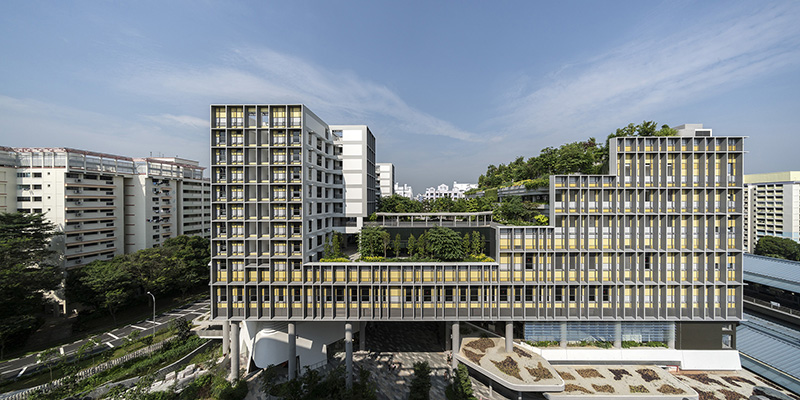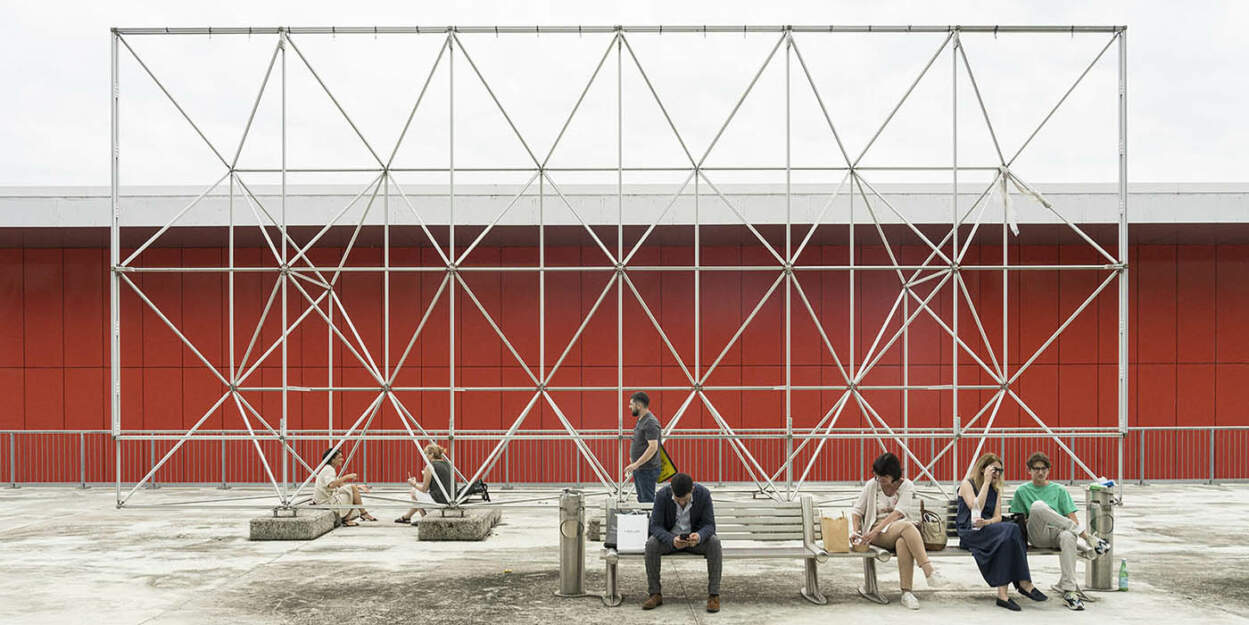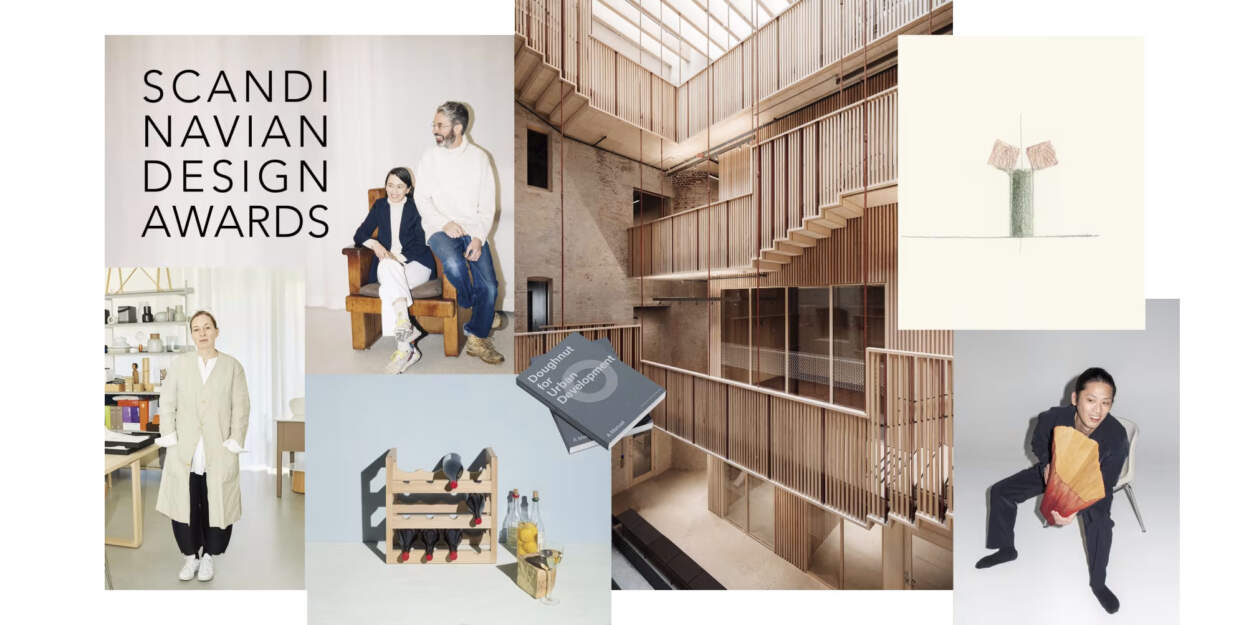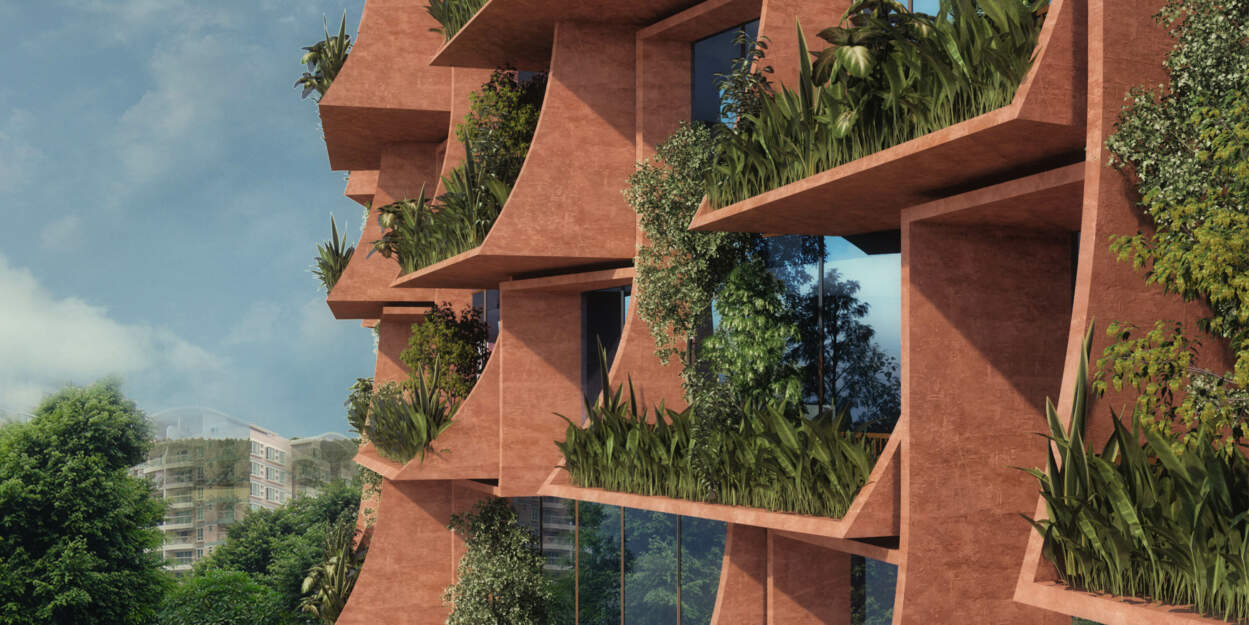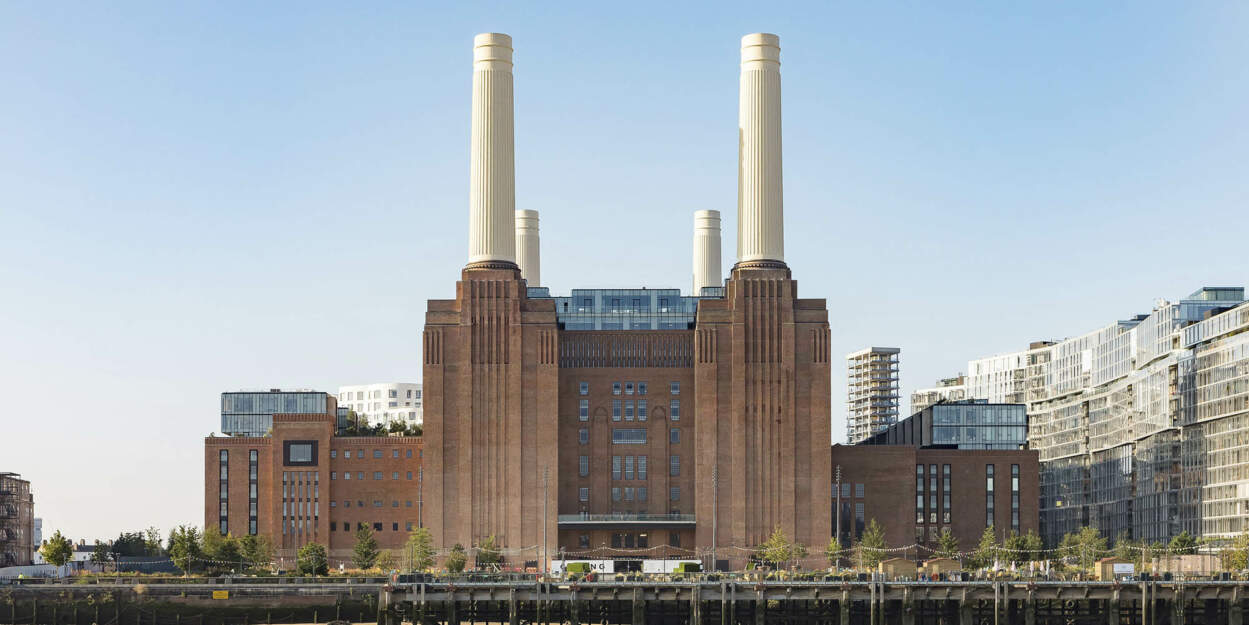Our congratulations goes to WOHA that wins World Building of the Year 2018 Award at World Architecture Festival 2018 with their Kampung Admiralty in Singapore!
The substantial mixed use building is Singapore's first integrated public development that brings together a mix of public facilities and services under one roof.
The one stop integrated complex maximises land use and is a prototype for meeting the needs of Singapore's ageing population. Locat ed on a tight 0.9Ha site with a height limit of 45m, the scheme builds upon a layered ‘club sandwich' approach, with a range of commercial, residential and health space amid amenities and community services, topped by extensive green terraces adorning vari ous elevated spaces.
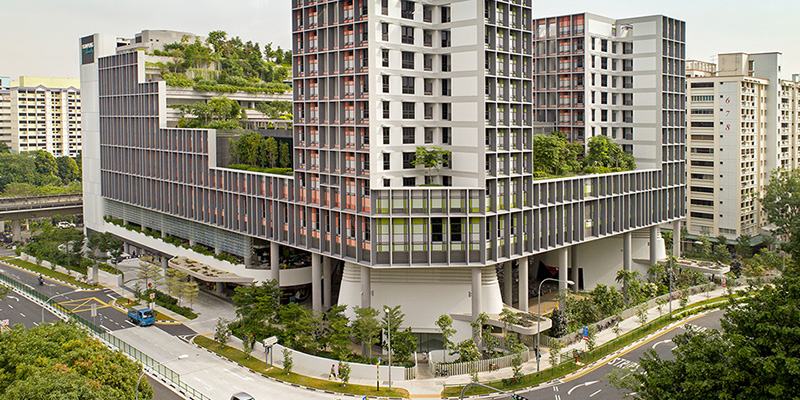
World Building of the Year Winner: Kampung Admiralty in Singapore by WOHA Architects Image credit: Patrick Bingham-Hall, Darren Soh, Lim Weixiang
This is the third time that a project from Singapore has claimed the top prize at the ‘Oscars of Architecture', following Cooled Conservatories at Gardens by the Bay, designed by Wilkinson Eyre, Grant Associates, Atelier One and Atelier Ten winning in 2012; and The Interlace by OMA and Buro Ole Scheeren winning in 2015.
Paul Finch, Programme Director of the World Architecture Festival commented: “The judges admired the project for the way in which it dealt with the universal condition of longevity and health treatments, social housing provision, and commercial space, which enabled substantial public realm benefits. This hybrid building also incorporates a huge amount of greenery (more than 100% of its footprint) in a series of layered levels which have generated welcome biodiversity. This is a project that does something necessary in an intelligent fashion from the way it connects to transport to its natural ventilation strategy, all benefitting from a decision to layer a series of buildings rather than separating them into separate tall blocks. The jury felt this was a project with potential lessons for cities and countries around the world.”
The winner was selected by a super-jury of World Architecture Festival 2018 venerated representatives of the global architectural community comprising Li Xiadong (Founder and Professor School of Architecture, Li Xiadong & Atelier Tsinghua); Nathalie de Vries (Director and Co-founder at MVRDV); Frederick Cooper Llosa (Founder and Senior Partner COOPER, GRANA, NICOLINI, Arquitectos) and Lesley Lokko (Head of Graduate School of Architecture University of Johannesburg).
The World Building of the Year and a range of other top awards and prizes were announced last evening of the World Architecture Festival 2018 at a glamorous gala dinner for over 900 international architects at the Beurs van Berlage in the centre of Amsterdam.
The Future Project of the Year 2018 supported by ABB & Busch-Jaeger, which celebrates the best of the world's unbuilt architecture, is Medellin River Parks / Botanical Park Masterplan, in Medellin, Colombia, by Sebastian Monsalve + Juan David Hoyos. Combining a strategic, long term masterplan with a forensic attention to experiential quality, this highly impressive proje ct aims to reconceptualise and regenerate Medellin's extensive river corridor. In this complex process of urban restructuring architecture is just one aspect within a network of initiatives yet architectural imagination clarifies and reframes the possibili ties for civic renewal.
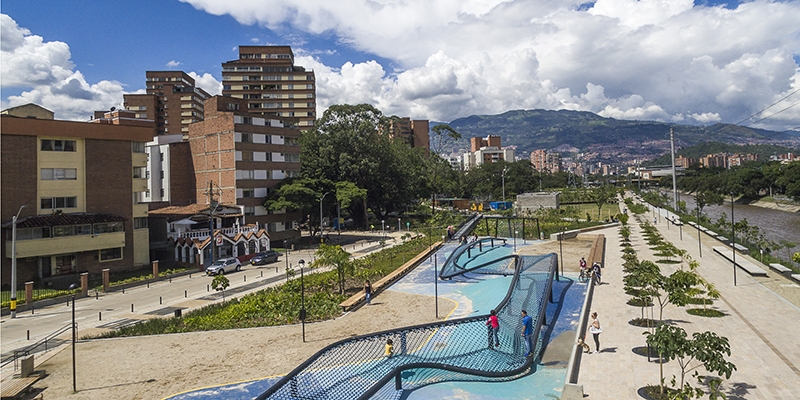
Future Project of the Year Winner: Medellin River Parks / Botanical Park Master Plan, Medellin, Colombia by Sebastien Monsalve + Juan David Hoyos
The festival's jury was deeply impressed by the quality of strategic thinking and engagement and how this shaped a view of how urban spaces could be developed, used and inhabited.
The judges felt that “by literally building bridges to connect disparate communities, it epitomises how architectural imagination can have an activist dimension, catalysing the social potential of the city.”
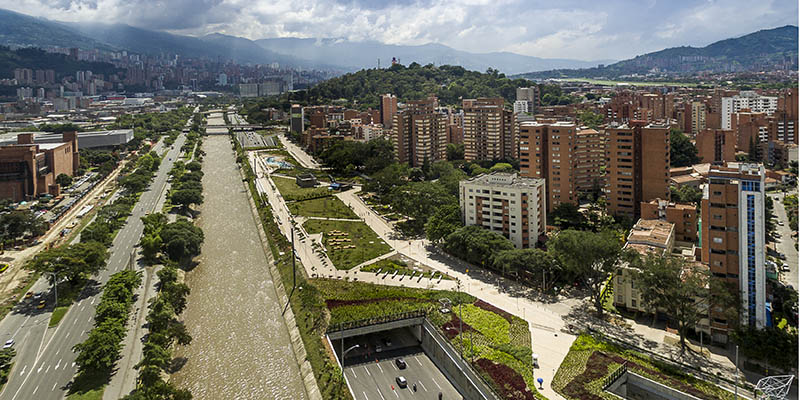
World Architecture Festival's Future Project super jury was composed by Carin Smuts (Founder, CS Studio Architects), Catherine Slessor (Contributing Editor, The Architectural Review), Paul Hyett (Principal, HKS Architects) and Christine Hawley (Professor, The Bartlett School of Architecture, UCL)
Landscape of the Year 2018 was awarded to Batlle i Roig Arquitectura for their Pedestrian Path along the Gypsum Mines project in Barcelona, Spain. The project aims at creating a set of pedestrian and bicycle itineraries in the form of a green belt on the perimeter of the city, and impressed the judges with a “poetic response using minimal means”, engendering a “process of observation, translation and transformation”. The jury also commended it for its innovative use of materials.
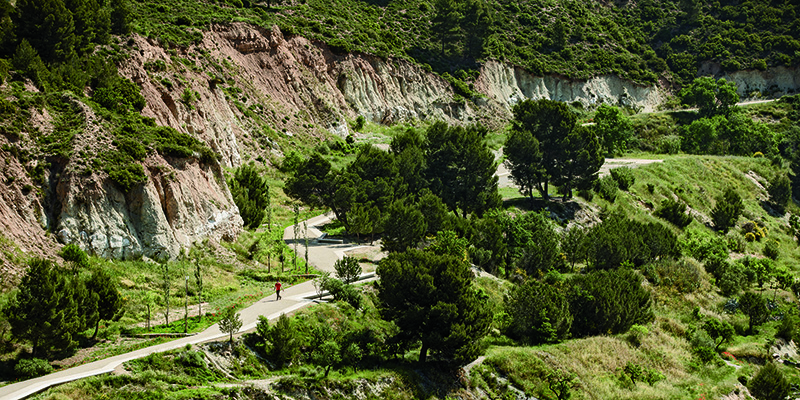
The Small Project of the Year 2018 was awarded to Camilo Moraes for Piedras Bayas Beachcamp in the Atacama Desert, Chile. The sustainable and itinerant tourism station is located in the untouched landscape of the coastal area of in northern Chile.
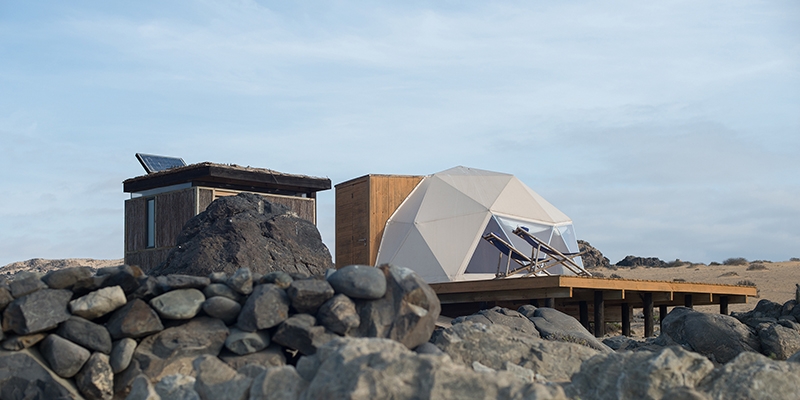
The Use of Colour Prize, went to dePaor for their Palais Cinema project in Galway Ireland. The cinema's interior is illuminated during the day by elegant painted glass windows, and at night these artworks bring lamination and colour to the street outside. Judges lauded the project as a “beautiful building
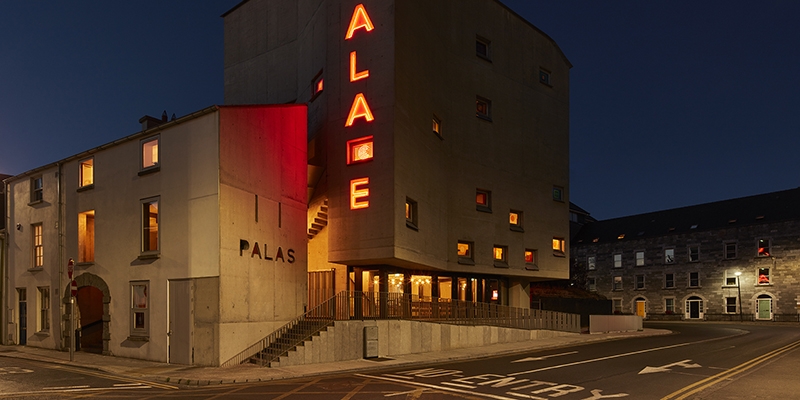
The Best Use of Certified Timber Prize, supported by PEFC, was awarded to Tzannes for their International House Sydney project in Australia. The category had an exceptional range of high-quality entries which made judging challenging. The winner's innovative development of certified timber as a durable, sustainable and commercially viable material was deemed by the festival's judges as “exemplary”. The judges also felt that “the architects have set new standards for future architectural solutions and workplace environments.”
The Glass Future Prize, supported by Guardian Glass, was won by Studio Gang for Tour Montparnasse in Paris, France. Originally developed for the international competition to redesign the French capital's famous Tour Montparnasse tower, Studio Gang's design transforms this monolithic skyscraper into a beautiful new landmark for twenty first century Paris. The jury was impressed by the project's performance-driven design, which incorporates using wind as a driver to change the building's massing, and also by its dynamic shading system. Studio Gang was awarded even for its Beloit College Powerhouse Project in Wisconsin, USA, with the overall WAFX Prize. Prize awarded to future projects that identify key ecological and societal challenges which architects are actively seeking to address over the next ten years.
Paul Finch added “2018 has been our most successful festival to date, and we look forward to returning to Amsterdam this time next year.”
…and we look forward too!


